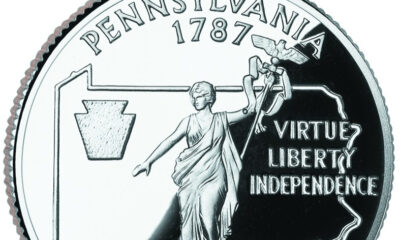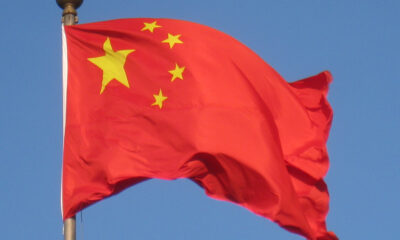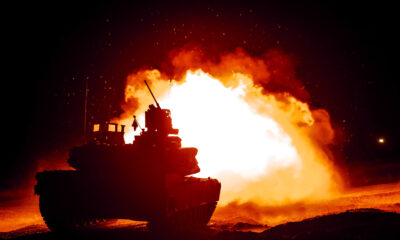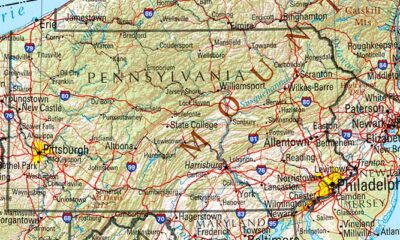Executive
Tariffs, jobs, and national security
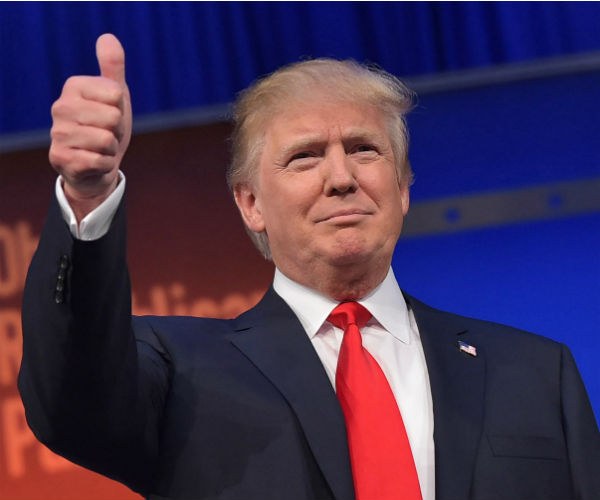
President Donald J. Trump has now created a stir with his proposal to lay tariffs on steel and aluminum. Commentators of good heart, disagree on the wisdom, utility and efficacy of these or any other tariffs. But tariffs represent more than a special favor or privilege to particular constituents. (Your editor would say donors, except that Donald Trump self-finances and so needs no donors.) In fact they represent an eminently sensible policy, one the United States abandoned too quickly after World War II.
An instructive history of tariffs
As Patrick J. Buchanan tells us, American economic policy included tariffs soon after Independence. Pat Buchanan explains it in greatest detail in his seminal work, The Great Betrayal (New York: Little, Brown, 1998).1 In brief:
Behind a tariff wall built by Washington, Hamilton, Clay, Lincoln, and the Republican presidents who followed, the United States had gone from an agrarian coastal republic to become the greatest industrial power the world had ever seen — in a single century. Such was the success of the policy called protectionism that is so disparaged today.
How? Simple. The people of any country come to need things. They can either make those things themselves or buy them from abroad. And when they buy from abroad, they depend on foreign sources and typically overseas shipping routes.
Alexander Hamilton recognized the problem. The people, in his view, faced a stark choice. Develop our own industries, or depend on others. He urged domestic development.
And as Pat Buchanan has also pointed out, tariffs paid the federal government’s bills for more than a century. Then William Howard Taft made a bad bargain. He accepted income taxes without State-by-State apportionment as a price of further tariffs. In other words—and by the admission of free-trade advocate Bruce Bartlett—Taft accepted a “fundamental transform” of America. And he did it before a Kenyan-born (?) “President” would utter that infamous phrase in his campaign. Eventually, the federal government would pay its bills by:
- Taxing the income of its own citizens, and
- Overextending the “full faith and credit” of these United States.
Behold the consequences: unemployment and dependency.
The correct lesson from the Smoot-Hawley Tariff
Critics of tariffs always have a bogeyman: the Smoot-Hawley Tariff of 1930. But no one examines it closely. Arthur Laffer’s warnings of points of diminishing returns apply equally to income taxes and tariffs. Smoot-Hawley went beyond the point of diminishing returns. Had the United States gone past that point already? No. If it had, the Twenties would never have “Roared” as they did. The Republicans imposed the Fordney-McCumber Tariff in 1922. From that year to The Crash, America enjoyed prosperity she would not know until the War. And why the Crash? The Crash resulted, not from tariffs, but from fractional reserve banking and fiat money.
In point of fact, Herbert Hoover simply was not a worthy successor to Calvin Coolidge. Hoover understood only ill the effects of tariff or tax policy on a nation’s economy. Recall the dates! When Smoot and Hawley introduced their tariff bill, the Crash had already taken place! Smoot, Hawley and Hoover acted in desperation—and desperation usually makes disaster. But one cannot blame Smoot or Hawley for a dire event that happened before.
The War, not FDR, ended the Depression
So: did Franklin D. Roosevelt return America to prosperity by confiscating private wealth and repealing tariffs? Let us all roll on the floor laughing! In fact, American industry would not recover until 1939. In that year American industry first started retooling for war production. Then, of course, in 1941, the Japanese Navy foolishly
awakened a sleeping giant and filled him with a terrible resolve.
Idle hands became soldiers. Then when labor actually ran short, women started working in the factories. This combination won World War II. After the War, the Republicans sensibly cut taxes. That gave America another round of prosperity to rival the Twenties.
The current debate on tariffs
Today, Donald Trump proposes a tariff of 25 percent on steel and 10 percent on aluminum. Representative Mark Sanford, R-S.C.-1, decries these new tariffs. Governor Scott Walker (R-Wisc.) expresses somewhat more temperate concern. Erick “RedState” Erickson wants the Republican House and Senate Caucuses to grow some—er—urological organs and oppose Trump’s tariffs.
Where does their concern come from? Gov. Walker and Rep. Sanford both represent end-users of steel and aluminum. Walker represents the Beer State. Think of all those aluminum beer cans, and ultra-thin aluminum foil for Seneca Foods and the Bemis Company.
Only one U.S.-based manufacturer of ultra-thin aluminum [exists]….Their limited capacity doesn’t [let] them…produce enough ultra-thin aluminum for Bemis, let alone the entire U.S. market.
Hold on. Why does the U.S. have only one manufacturer of ultra-thin aluminum? Because decades of “free” trade have put the other ultra-thin aluminum makers out of business.
Rep. Sanford now represents Boeing, who left Washington State after the unions also outraced the point of diminishing returns. But has he forgotten already? Boeing already uses advanced composites to build its signature twin-engine fuel-sipping airliners. And Rep. Sanford should take heart for another reason. The United States Steel Company are already recalling workers they had laid off over the years. The tariff announcement prompted that recall. Let the reader browse this search result from DuckDuckGo and decide for himself.
Dick Morris and company set the record straight
Dick Morris, of course, worked in the Clinton White House. He saw first-hand the sellout of American interests in trade deals with China. Sandy Berger, then the trade representative, excused egregious violations of any concept of free or reciprocal trade. He did it to further his own business interests in China, and those of his friends.2
Morris, in that “Lunch Report,” reminds us of something of which Rep. Sanford and Gov. Walker have lost sight. Bruce Bartlett at CATO likely never caught sight of this fact. What fact? We live in an imperfect world. “Free trade” applies best of all to polities that:
- Belong to a permanent and lasting federation, or
- Have a permanent alliance extremely unlikely to break.
The People’s Republic of China is neither ally nor co-federal nation-state. Pat Buchanan knew that. Note the subtitle of his book The Great Betrayal:
How American Sovereignty and Social Justice Are Being Sacrificed to the Gods of the Global Economy.
The true globalist agenda
And not merely the global economy. The globalist movement seeks to establish a one-world federation of all the peoples of the world. These same globalists run the United Nations. Its officials do not even try to enforce or exemplify any reasonable standard of human rights.3 More to the point: they seek to:
- Confiscate small arms from all save law-enforcement officers, active-duty military, VIPs and their bodyguards.
- “Emancipate” all minors so that Social Justice Warriors—and sex traffickers—can exploit them more readily.
- Jam all of humanity into ten percent of its present land area and revert the rest to the wild.
- Impose iron rationing of energy use and “overthrow the dominant economic model” of the Western world, which is capitalism.
Only a Social Justice Warrior would see any point to staying a member. That goes double if, as the globalists would like, the UN:
- Subsumes all member state militaries into one unified group of armed services.
- Establishes a Division of Intracontinental Revenue that would issue Form UN-1040: United Nations Individual Income Tax Return.
Why a sovereign United States should pay its bills with tariffs
Cillian Zeal at Conservative Tribune has a theory of Trump’s actions. Does Trump plan to pay the federal government’s bills through tariffs instead of taxes? Pat Buchanan should applaud, if he realizes this himself. Mr. Zeal quotes Frank W. Taussig on tariff policy. To paraphrase briefly: America laid a $28 per ton tariff on steel rails after the War Between the States. That tariff paid the country’s bills and helped American companies make the rail on which so many goods moved.4
Trump’s tariffs could answer the question, “But how are you going to pay for tax cuts?” More than that, tariff revenues could start to eclipse income tax revenues. Contrary to CATO, tariffs and direct taxes constitute two different kinds of taxes with two different effects.
Good candidates for protection: war industries
Imagine trying to fight a war without a domestic war industry. From the beginning you depend on outside supplies. The enemy can then destroy your ability to make war with the simplest expedient: a blockade. The United States Navy did as much as would General Grant’s Army of the Potomac to defeat the South.5 More recently, President John F. Kennedy laid a blockade on Cuba. Thus he forced Nikita S. Khruschev to cry Dyadya and remove the missiles.
Blockades succeed when the side under blockade cannot make things by itself. Acquiescence in the bankruptcy and liquidation of domestic industry, sets the country up for a blockade. Representative Sanford should think carefully about the port city in his district. That city has already known one blockade; would he try for another?
Automobiles, aircraft, steel, aluminum, all qualify as war industries. Anything that equips a soldier, and gets him to the battlefield, so qualifies. Tariffs ensure that those industries will not die out in “peacetime.”6
But protecting war industry should not include shortchanging or endangering an ally. General Dynamics of Fort Worth, for example, prevailed on its friends in Washington to stop the Republic of Israel from developing its own jet fighter. That was wrong, and the U.S. government was just as wrong to agree. The reason: one’s key ally shouldn’t have to rely on a vulnerable supply line, either.
The ultimate blockade: occupying an ocean
This last example brings to mind the most stark reality of World War II. The Nazis made the Atlantic Ocean their lake, and the Japanese made the western Pacific Ocean their lake. This cut off vital supplies at once. The United States coped with this with rationing of everything from motor fuel to rubber to household staples. You name it; we imported it. Except we couldn’t during the War, because our enemies occupied our very suppliers.
Tariffs provide insurance that we need not face such cutoffs again.
Avast there! Keep your heads down!
Blockades present only one hazard to international trade and domestic industry. Piracy presents the other. The history of civilization, and of maritime economy, has a parallel history of piracy. As long as ships sail in open waters—usually without armaments—pirates can attack and seize them. In fact, piracy became a means of naval warfare by proxy. Queen Elizabeth I famously used privateers to devastating effect. (Today, treaties forbid privateering. Or do the Somalis get away with privateering today?)
Few people recall this part of the life of Gnaeus Pompeius Magnus—Pompey the Great. One way he made himself great was to get a Roman Senate commission to combat piracy in the Mediterranean. He then cleaned out all the pirate coves from Gibraltar to Judea. Then he fought the War against the Two Kings of Asia Minor (Tigranes of Armenia and Mithridates of Pontus).
Today another institution forces pirates to keep their heads down (that is, when it can operate effectively). That institution is the United States Navy.
What nation-state, then, has the better right to lay tariffs, than the United States of America? The United States Navy keeps order on the high seas. Someone has to pay for that favor. Tariffs are the fees for safe passage and removal of the hazards of piratical harassment and seizure.
Summing up
Pat Buchanan today asks—correctly and reasonably—why anyone concerned with good government should shy away from tariffs. Tariffs pay the bills more justly and do less economic damage than do income taxes. They ensure that a country will have a war industry, should war break out. And they support the institution that keeps pirates at bay today.
Endnotes
1Some wags will doubtless make much of the actual publication date of The Great Betrayal: 1 April 1998. April Fool’s Day. But your editor urges people to read this work. Close, thoughtful readers will see that Pat Buchanan is nobody’s fool.
2Subscribers to The American Spectator might remember a cover cartoon from that era. It depicts President Clinton and his Chinese counterpart riding a rickshaw. Secretary of State Madeline Albright and trade rep Sandy Berger pull that rickshaw for all they’re worth.
3The Universal Declaration of Human Rights includes many things more appropriate to socialism than true liberty. Worse, the worthies at the UN display hypocrisy that should shock anyone. In point of fact, they honor that Declaration more often in the breach than otherwise. Proof: if the UN enforced half the important provisions of the Declaration, fully half its current membership would lose eligibility.
4Bruce Bartlett also quotes this same work by Taussig to support his own thesis. One must wonder whether Barlett and Zeal actually read the same work by the same Frank W. Taussig.
5Consider the importance of the battle between USS Monitor and CSS Virginia (formerly USS Merrimac). Next consider the battle between USS Housatonic and CSS Hunley. More to the point, consider the development of these two CSN vessels—one ironclad, the other a submarine.
6“‘Peace’ is a condition in which no civilian pays any attention to military casualties which do not achieve page-one, lead-story prominence—unless said civilian is a relative of one of the casualties. But…there has [n]ever been a time in history when ‘peace’ meant there was no fighting going on….” – Robert A. Heinlein, Starship Troopers
Terry A. Hurlbut has been a student of politics, philosophy, and science for more than 35 years. He is a graduate of Yale College and has served as a physician-level laboratory administrator in a 250-bed community hospital. He also is a serious student of the Bible, is conversant in its two primary original languages, and has followed the creation-science movement closely since 1993.
-
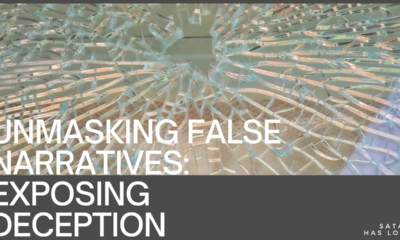
 Clergy4 days ago
Clergy4 days agoWhy Do The American People Let The Corrupt Media & Politicians Set The Propaganda Narrative – Speak On Their Behalf
-
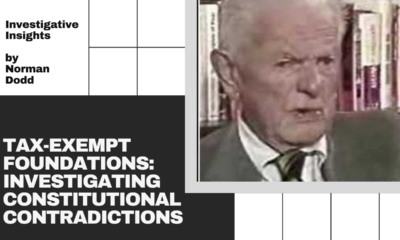
 Constitution5 days ago
Constitution5 days agoCHAPTER 9: Norman Dodd Interview Space Is No Longer the Final Frontier––Reality Is [upcoming release April 2024]
-
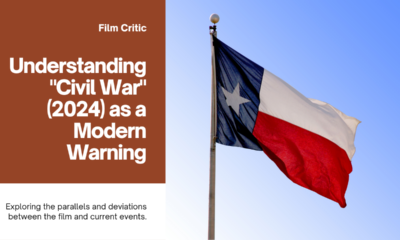
 Entertainment Today5 days ago
Entertainment Today5 days agoCivil War (2024) – an incomplete prediction
-
![CHAPTER 10: Objective Reality Is Required for a Free Society Space Is No Longer the Final Frontier—Reality Is [upcoming release May 2024]](https://cnav.news/wp-content/uploads/2024/04/Objective-reality-v-acceptance-400x240.png)
![CHAPTER 10: Objective Reality Is Required for a Free Society Space Is No Longer the Final Frontier—Reality Is [upcoming release May 2024]](https://cnav.news/wp-content/uploads/2024/04/Objective-reality-v-acceptance-80x80.png) Education4 days ago
Education4 days agoCHAPTER 10: Objective Reality Is Required for a Free Society Space Is No Longer the Final Frontier—Reality Is [upcoming release May 2024]
-
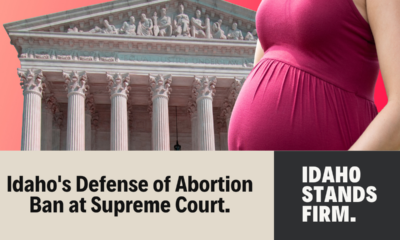
 Human Interest4 days ago
Human Interest4 days agoIdaho prepares to defend its abortion ban
-

 Civilization3 days ago
Civilization3 days agoEarth Day Should Celebrate U.S. Progress & Innovation
-
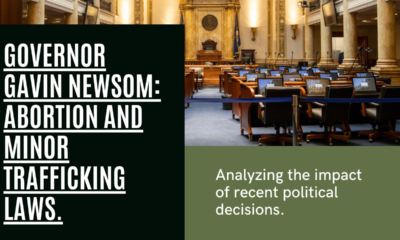
 Civilization2 days ago
Civilization2 days agoNewsom plays silly abortion politics
-

 Education18 hours ago
Education18 hours ago‘Grading for Equity’: Promoting Students by Banning Grades of Zero and Leaving No Class Cut-Ups Behind





